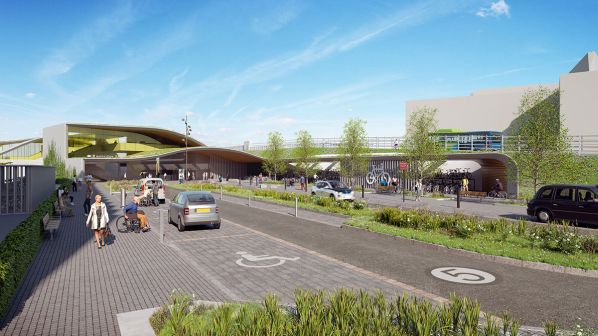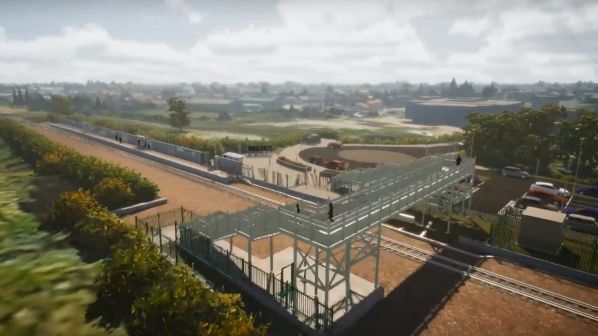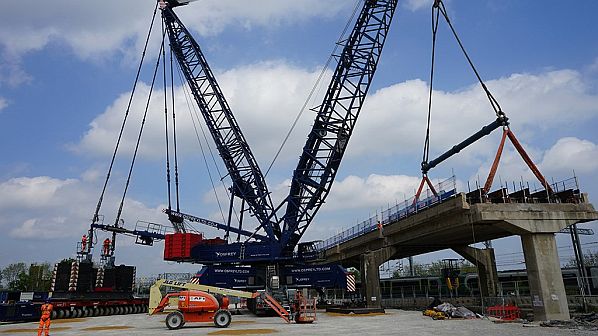THE Department of Transport (DfT) announced on June 5 that work has started to build a new station in Cambridge that will serve the city’s Biomedical Campus.
Cambridge South is due to open by 2025 and will have four platforms located on the Cambridge - London main line south of the city centre. It will be operated by Greater Anglia and is expected to be used by 1.8 million passengers a year.
The new station will be fully accessible with lifts providing step-free access to the platforms. A total of 800 cycle parking spaces will be provided.
NR says that track work required on the southern approaches to Cambridge will include installing two new loops to serve the four-platform station and enhancements to Shepreth Branch Junction where the routes to London King’s Cross and London Liverpool Street diverge.
DfT says that £200m of government funding has been earmarked for the project, but exact costings will only be finalised once construction has been completed by infrastructure manager Network Rail (NR).
The project is expected to support 300 new construction jobs.
The Cambridge Biomedical Campus is centred on the teaching hospitals of the University of Cambridge and is Europe’s largest centre of medical and health science research, according to DfT.
The area to the south of the city centre is expected to undergo rapid growth, with 4000 new homes forecast to be built by 2031 when some 27,000 people are expected to be working nearby.
DfT says the new station will also be served by East West Rail, the project to reopen the route between Cambridge and Oxford via Bedford and Bletchley.
“This brand new station will not only benefit local passengers but deliver a major boost to the entire city, improving connectivity to a world-leading academic hub while unlocking local business and growth opportunities across the region,” says rail minister, Mr Huw Merriman.
“It’s an exciting time for the railway in Cambridgeshire with a green light to deliver a new station that will serve the vitally important and growing biomedical campus,” says NR route director for Anglia, Ms Katie Frost.
“We are delighted that the Cambridge Biomedical Campus is to get its own railway station in less than two years’ time. Better public transport links will be critical in fulfilling our vision of a more sustainable campus, says Ms Kristin-Anne Rutter, executive director of Cambridge Biomedical Campus.
“Currently, there are around five times as many visits to the site as there are car parking spaces. We have to find ways of making it easier for the thousands of staff, National Health Service patients and visitors arriving daily to get here without needing to use a car.”
For detailed data on British infrastructure projects, subscribe to IRJ Pro.




